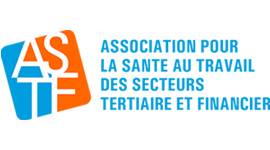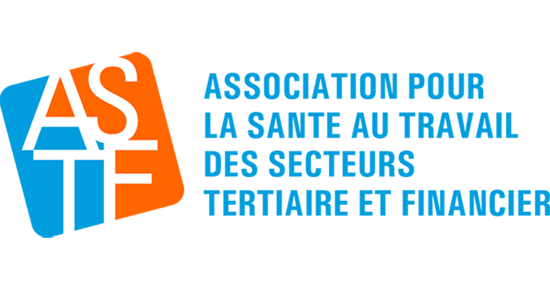This 2025 World Day for Safety and Health at Work is special. Since 1995, we have been working to preserve health and safety..
Ergonomics is the study of the workplace and working conditions, encompassing the analysis of work environments as well as the equipment, tools, and interfaces that users are confronted with.
The employer is legally required to provide the appropriate work tools for the task at hand in order to ensure the health and safety of workers. The Grand Ducal Regulation of November 4, 1994 defines the criteria that office furniture and electronic equipment must meet.
The ASTF, as an advisor to the employer, offers ergonomic advice in various forms.

Workstation ergonomics
Ergonomics is a comprehensive approach that aims to create a healthy and comfortable work environment. It takes into account workstations equipment, factors such as lighting, air quality, noise, temperature, and especially the user’s posture.
By considering these aspects, it is possible to design work environments that promote employee well-being and productivity.

From equipment to posture
To prevent pain and musculoskeletal disorders, it is essential to combine a well-designed work environment with healthy lifestyle habits and good physical condition.
The ASTF has chosen to focus on physical mobilization because tone and flexibility allow for the prevention of pain, resistance to repetitive efforts, and reduction of the risk of injuries related to static work positions.

Beyond furniture
Parameters such as lighting, air quality, noise, and temperature also play a role in creating an optimal work environment as they can have a direct impact on the health and well-being of users.
By taking these factors into account, it is possible to create healthy and comfortable workspaces for employees.
The risks of poor working posture
Spending hours at a workstation every day can have serious health consequences when poor postures are adopted.
The risks associated with poor ergonomics are numerous and can have long-term effects on well-being and productivity, including:
- Chronic pain: Problems can arise from poor habits and posture.
- Musculoskeletal disorders: Back, neck, wrist pain, and tendinitis can become chronic and affect quality of life.
- Decreased productivity: Pain and discomfort can reduce concentration and efficiency at work.
- Absenteeism: Pain can lead to repeated absences, disrupting team functioning or affecting a career.
Don’t let these risks compromise your well-being and performance, take adequate measures.
Ergonomic Adaptations and Postural Strengthening
Ergonomics is not just about making a workstation more pleasant or comfortable; it plays a crucial role in preserving physical well-being.
The ASTF offers a global approach that includes adapting the work environment and strengthening posture, in order to prevent musculoskeletal disorders and alleviate pain before it becomes chronic.
Have you ever felt the same muscular tension or pain several times after a day’s work?
The ASTF’s global approach
Workstation Adaptation
Adjusting furniture to the user.
Positioning of screens.
Choosing peripherals.
Postural Strengthening
Muscle strengthening exercises.
Stretching techniques.
Posture correction.
What the Ergonomics service includes
Assessments and identification of necessary improvements, provision of reports with proposals for adaptations and adjustments.
Tailored advice for adapting workstations to individual morphologies and specific needs.
Creation of personalized programs based on postural muscle strengthening, stretching, and pain prevention.
General information and training sessions on best practices to adopt.
Training of Ergo-Coaches within companies.
You are part of an ASTF member company and you would like more information, use the contact form at the bottom of the page.
This is not an appointment form.
For booking appointments and consultations, use your dedicated interface or contact the secretariat.
Articles: Ergonomics
Contact
Form
For appointments and consultations,
use your dedicated interface.
Fields marked with (*) are required.









